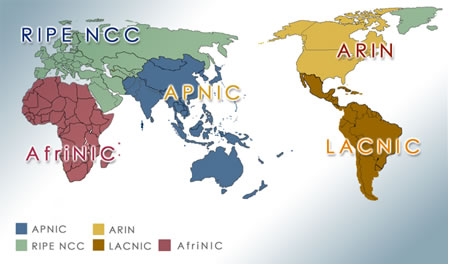
The Truth about IP Addresses Part 2: IPv4 vs. IPv6
February 25, 2014
Top 3 WordPress Plugins that Enhance Security
February 26, 2014First and foremost you should understand that IP addresses (IPs) cannot be bought or sold. According to the American Registry of Internet Numbers (ARIN), IPs are not purchased or sold but rather exchanged between two organizations. Organizations in possession of ARIN allocated IPs essentially transfer the rights to use and register IPs to other organizations.

Let’s get real – IPs have a price tag
Let’s break it down: essentially there are two ways to acquire IPs: A direct allocation from ARIN; or an ‘assignment’ by an ISP, which is a transaction with a fee.
By direct allocation, ARIN is specifying that the IPs will be used for the purpose of subsequent distribution (ARIN Policy, 2013). On the other hand, an assignment means the ISP, already allocated IPs from ARIN, will delegate address space to another ISP or end-user for a specific use within their Internet infrastructure (ARIN Policy, 2013).
Acquiring IPs through service providers
This process of assigning IPs to end-users usually takes place within the marketplace through a valid, monetary transaction. Most end-users receive IPs directly through their internet service provider’s (ISP) hosting plan. For example; GoDaddy includes 3 dedicated IPs with every dedicated server plan. They even offer a dedicated hosting IP plan which enables website owners to have their site on its own IP address. Clearly both of these plans come at a cost to the end-user, but what are they being charged for?
Pertaining back to the IP conversation, end-users are being charged for the use of the ISPs network to host the IPs rather than the IP itself. As stated above, IPs cannot be bought or sold but organizations may charge the end-user for its use. Many ISPs even give their customer the option to add as many IPs to their hosting plan as needed.
Assuming the ISP is growing, they will continue to be allocated large blocks of IPs from ARIN to meet the demands of their growing network and thus be able to assign large amounts of IPs to their customers – at a price. Unfortunately with the depletion of IPv4 addresses, many tech companies needing large amounts of IPs are having a hard time getting more assigned to them.
So it begs the question, beyond going through ISPs, how are these tech companies getting IPv4 addresses to sustain their needs?
For companies wanting headache-free, clean IPs they go directly through ARIN. The company will then justify the IPs use within their network and, assuming everything is Kosher, they will receive IPs directly allocated to them. 
There is no cost for the IPs themselves but rather ARIN charges fees for the registration, transfer, and maintenance of the IPs and their records. With initial registration plus an annual renewal and maintenance fee, ARIN allocated IPs can cost a company more than $2K per a year – a cost well worth the services ARIN renders.
IP Auctions
Besides directly doing “business” with ARIN, companies are turning to ‘IP auctions.’ IP auctions are a relatively new concept for the tech world. Created by technology brokers, IP auctions are another way companies are getting their IPv4 space. These “auctions,” or rather list services, are dedicated to finding and connecting companies to IP addresses they need to run their business critical hardware and network. Through websites or newsletters, tech brokers are promoting IP addresses that, as they claim, can be leased or purchased from another organization.
Specified Transfer Listing Service
If off-the-grid tech brokers don’t appeal to you, ARIN has their own list service for IP buyers and sellers. The Specified Transfer Listing Service (STLS) facilitates the “transfer of IPv4 addresses” between companies that have IPv4 addresses available and those who “demonstrate need for IPv4 addresses,” (ARIN.com, 2013). Although STLS is just getting started, it is a risk-free option for companies looking for additional space.
IP Hijacking
The last, and completely villain-esque way to get IPs is what people refer to as ‘hijacking’. Hijacking is the process of people or organizations routing unused IPs without having the authority to do so. These hijackers search the web for unused IP blocks and announce the block to their network.
Many times, hijacked IPs are used for illegal activity but thanks to organizations like Spamhaus, ‘hijacked’ IPs are typically blacklisted. Once blacklisted, the IPs are reported to the majority of the Internet’s Email Service Providers, Corporations, Universities, Governments, and Military networks with whom block the IP from entering their network (Spamhaus.org, 2013). Spamhaus, along with the other cyber-crime fighters of the world, deserve a big high-five for their continuous effort in tracking the illegal use of IPs. As of right now, Spamhaus Blocklists are protecting nearly 2 billion mailboxes (Spamhaus.org, Feb 19, 2014).
To sum it up, tech companies are getting creative on how they get allocated or assigned IP blocks. By using one of the services above, companies are meeting their IP needs at a price. Is your company in need of more IPs? Where are you turning to get them?
